The Topic of this Issue
Chess between a Game and the Brain |
|
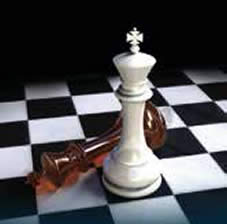 |
Chess, the game worthy of kings, is loved and played by many – from pensioners in parks to school children. It is estimated that it is played globally by more than 600 million people. Yet, not everyone can be a master. Whether a great chess player is born or made is discussed by Josip Ašik, editor of the magazine “Chess Bulletin” and FIDA international chess master, also speaking of some chess secrets. By the nature of his work he is in contact with practically all top chess players of the world.
It is believed that chess was invented in India and that initially it was played by four players. Over the subsequent centuries it spread across Asia, the rules changed and it was played by two players. At the end of the Middle Ages it became known in Europe. Many legends surround this ancient game.
|
Scientists
Creation of cosmic structures |
|
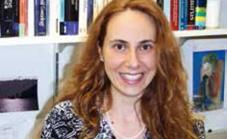 |
In the middle of this summer, a group of scientists from Harvard, MIT, Princeton, Heidelberg, and Cambridge caused great excitement in global media by their work on detailed visualization of the formation of space. The only representative of Cambridge was Dr Debora Šijački, originating from Serbia, university lecturer at the Institute of Astronomy of this reputable University. In this respect she appeared in a BBC prime time program on scientific achievements in the field of her activity.
|
Astrobiology
Along the tracks of alien life |
|
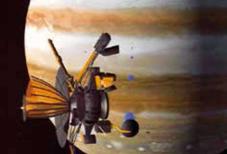 |
For more than a decade, the ice cover of one of Jupiter's moons (Europa) is attracting the attentions of astro-biologists. The reason for this is the ocean of running water beneath the ice cover which is estimated to be up to 100 km deep! If this is so, the ice cover of the Europa moon contains more water than all the seas and oceans on Earth. |
Astronomy
Discovering Planets |
|
 |
The mission “Kepler” which has the aim to discover Earth-like planets, recently discovered a planet which is so far the best candidate for a space body that could support life. The planet named Kepler-22b is about 600 million light years away from our planet. With this discovery the number of planetary candidates is now 2326. They exist in the habitable zones of stars around which they orbit.
|
Conquering the space
Monsters from Dreams |
|
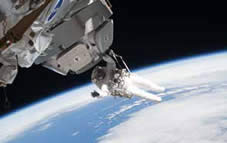 |
Risks for those travelling in spaceships can often be such that we cannot address the. One of them happens during sleep. Former and current cosmonauts have spoken publicly about the phenomenon haunting human brains and bodies turning them into space monsters. They investigated how these strange living conditions are reflected on the human psyche. The issue they studied is what is the “spiritual power of the universe”.
|
Medicine
Laparoscopic Tumor Removal |
|
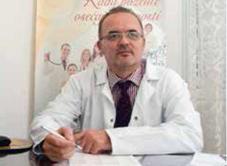 |
At the end of 1980's the first case of removing the gall bladder by means of a laparoscope (1985 in Germany and 1987 in France) started the era of minimum invasive surgery. Laparoscopic colorectal and trans-anal endoscopic micro-surgeries are two young and advanced disciplines within minimum invasive surgery in which Serbia is keeping pace with the world. Dr Goran Ivić, associate of the General Hospital Belmedic, is one of the surgeons with great experience in performing these surgeries. |
Medicine
Aviation and Health |
|
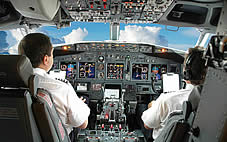 |
Any human activity in an aircraft, irrespective of its speed and the height at which it is navigating and for which purpose, requires different physiological contingencies than on solid ground. Aviation medicine has since its beginning has dealt with these issues, and at present times it is also dealing with the limits of human capabilities to adjust to what state of the art technology requires. These are some of the topics discussed with Dr Vladimir Lazić, neuropsychiatrist, associate of the General Hospital Belmedic and a doctor authorized by the Directorate for Civilian Aviation of the Republic of Serbia for examinations of civilian pilots, cabin crew, parachuters and flight controllers. |
Psychology
Artificial Intelligence |
|
 |
Will robots be the same as people or smarter than people? How realistic is it that we will create mental-plastic intelligence? Do we even know what intelligence is?
Steven Spielberg's film „Artificial Intelligence“ it is very difficult to notice the difference between the intelligent and the humanoid robot and the dying boy. This is a shock for the audience, used to robots as smart machines putting automobiles together or handing people something from the fridge. Intelligence is a purely human quality although it is a fact that it is becoming more and more unlikely that it will remain to be so.
|
Serbian Aviation
Wings above the Enemy |
|
 |
The Kingdom of Serbia founded its military Air Force on 24 December 1912, in Niš, becoming one of the first 15 countries in the world to have an air force. The Serbian aircrafts were first used in combat in March 1913, when four aircrafts were part of the wider units sent as relief to the Montenegrin Army during the siege of Skadar.
At the beginning of World War One the Serbian Air Force had a low number of functional aircrafts and qualified pilots. Since the Allies were too preoccupied, the Serbian Army was forced during the first nine months of the war to rely on its forces alone. Only later did France and Great Britain send assistance to the Military Air Force of Serbia.
|
Jubilees
Heritage which is Always New |
|
 |
The Serbian Academy of Science and Arts recently, at the highest state and expert level, marked two centuries of the birth of Josif Pančić, its first member and president. This most famous Serbian natural scientist became distinguished in the study of its county's flora and fauna, geology, mineralogy and agronomy.
A one-day scientific event was preceded by an exhibition „Heritage which is Always New“ on the achievements of Pančić in science and university work. In his key work „Serbian Flora“, Pančić divided the flora into „three unequal parts“: the flora of Šumadija, the flora of Southern Carpathians, and the flora of Eastern Alps. For this reason he is considered the founder of phyto-geography, a discipline engaged in the study of laws underlying the distribution of plant species.
|
The Origin of Man The Roots of Mankind in Africa |
|
 |
The person who died in the year 315 BC in southern Africa is the closest so far identified relative of the mankind's most recent common predecessor the mitochondrial Eve. Although the person died after Socrates and Aristotle, the man who was fishing along the coasts of Africa is the closest common predecessor. The woman named „mitochondrial Eve“ lived between 200 to 100 thousand years ago in southern Africa. Although she was not the first human on the planet, it is with her where present day humans can look for their mitochondrial DNA. |
Exotic nations Survival in the Amazons |
|
 |
In the east of the Amazon rainforest lives an isolated and very vulnerable tribe. The felling of trees is the key reason of its disappearance. It is one of the last societies of hunters-gatherers in the world, known as the Ava tribe. |
Energy Energy transition |
|
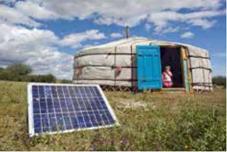 |
The time of cheap and plentiful energy is running out. The number of the global population is increasing and with it also the demand for energy. A solution to this problem is sought is the development of sustainable energy sources, limiting of consumptions (for instance, the ratio of energy consumption between Africans and American is 1:20) and an even distribution of resources. This was the topic of an international exhibition „Renew Energy” which was staged in September and October in the French Cultural Centre in Belgrade. |
Technology Desalinisation of Sea Water |
|
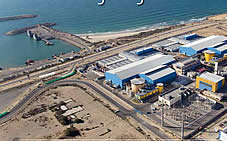 |
Due to significant water consumption, the costs associated with desalinisation are higher than those associated with treatment of river of well water treatment, greater even than costs of waste water treatment. Yet, in case without natural sources of sweet water, desalinisation plants are being built.
Desalinisation is a procedure whereby sea water is treated so that salts are removed and the water becomes suitable for drinking. That is why desalinisation plants are mostly located in the vicinity of sea coasts. During 2011 a total of about 16.000 fixed desalinisation plants were constructed producing on daily basis over 66 million m3 of water and supplying more than 300 million people. High capacity plants are currently being built in Saudi Arabia, United Arab Emirates and Israel. |

